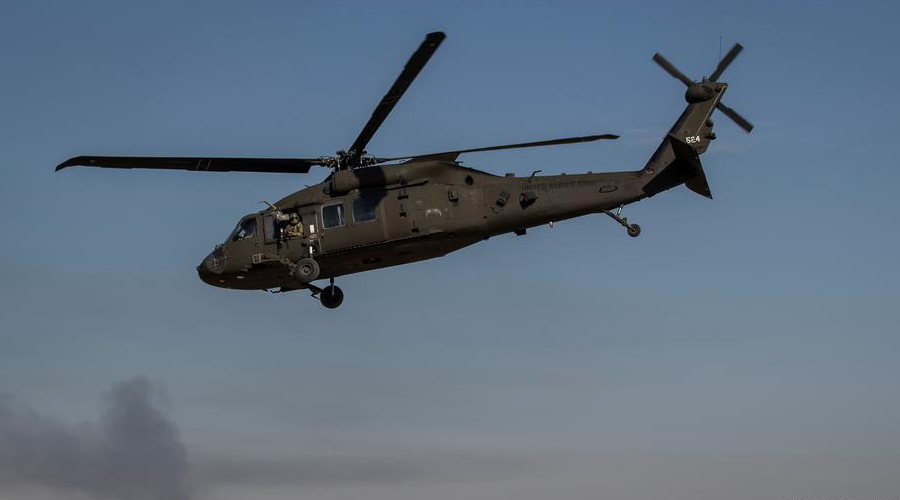The US military announced on Thursday that it killed three senior members of the so-called "Islamic State" (IS) during a rare operation in northern Syria.
The airstrike and helicopter raid are the first known US operations in territory held by forces loyal to Syrian President Bashar al-Assad.
The US Central Command (Centcom) spent more than 1,000 hours collecting intelligence on the targets to minimize the risk of collateral damage, officials said. There were no reports of civilian casualties.
IS second-in-command killed
A deputy leader of IS in Syria, Abu-Hashum al-Umawi, was killed by a US military airstrike on Thursday evening, Centcom said. The militant ranked among the top five most senior IS members worldwide.
Abu Mu'Ad al-Qahtani, who was described as an IS official in charge of prisoner affairs, was also killed in the same airstrike.
No US forces were injured or killed during the operation.
Top IS smuggler killed
Earlier on Thursday, Centcom also announced it had killed Rakkan Wahid al-Shammari, an IS official known to facilitate the smuggling of weapons and fighters, during a pre-dawn raid in Syria's Al-Hasakah governorate.
"Centcom forces conducted a raid in northeast Syria targeting a senior IS official," spokesman Colonel Joe Buccino said in a statement.
Syrian state television later said the operation involved multiple US military helicopters around the village of Muluk Saray, which is controlled by pro-Assad militias.
"They used loudspeakers to call on residents to stay indoors," one resident told the AFP news agency. Another local told Reuters news agency that residents had assumed the IS weapons smuggler "was just a shepherd."
One of al Shammari's associates was wounded during the operation, and two others were detained by US forces.
No coordination with Russia
Speaking on the condition of anonymity, one US official told the Associated Press that the US did not use the "deconfliction" phone line with Russia .
The US and Russia use the deconfliction phone line to avoid any possible accidents in regions of Syria where both countries operate.
However, the official said the decision not to use the phone line was due to operational security and not a reaction to Russia's invasion of Ukraine.










